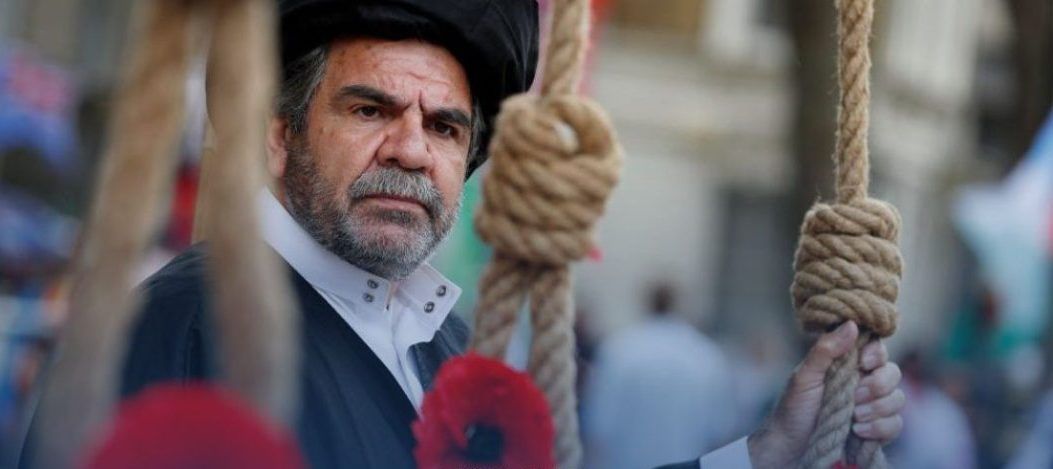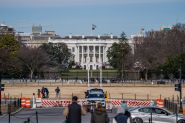- Home
- Middle East
- Iran Hangs Defendant in 2008 Case After 'Unfair Trial'

©(AFP)
Iranian authorities on Thursday executed Kurdish man Kamran Sheikheh, the last surviving defendant in a case linked to a Muslim cleric's killing in 2008, rights groups said.
Sheikheh, one of seven men first arrested in the case more than 14 years ago, was put to death in Urmia prison in northwestern Iran, the Norway-based Iran Human Rights (IHR) and US-based Human Rights Activists News Agency (HRANA) said in separate statements.
Sheikheh's six co-defendants, also members of Iran's Kurdish minority, had all been executed in separate hangings since November 2023.
Amnesty International has said they had been sentenced to death "in a grossly unfair trial" that had been "marred by allegations of torture and other ill-treatment."
The seven were convicted on the capital crime of corruption on earth.
IHR described Sheikheh as a "political prisoner" who had been sentenced to death "based on torture-tainted confessions in a grossly unfair trial."
The execution "was unlawful according to international law and the Islamic republic's own laws, amounting to an extrajudicial killing," said IHR director Mahmood Amiry-Moghaddam.
HRANA said that the proceedings related to the killing of an imam of a mosque in the northwestern city of Mahabad in September 2008.
Sheikheh and the six others were arrested in connection with the killing in January and February 2010 and sentenced to death in 2018.
Activists say that Iran's use of the death penalty disproportionately targets members of the Kurdish and Baluch ethnic minorities in western and southeast Iran, who generally adhere to the Sunni strain of Islam rather than the Shiism otherwise dominant in Iran.
In one of the latest cases, rights groups said the Revolutionary Court of Tehran had sentenced Pakhshan Azizi, a Kurdish woman held in the capital's Evin prison, to death on charges of "rebellion."
Earlier this month, Iranian authorities sentenced to death another Kurdish woman, Sharifeh Mohammadi, on the same charges over accusations of links to an outlawed Kurdish organization.
IHR warned that Sheikheh's execution is part of a new surge in hangings in Iran, marking the end of an apparent lull coinciding with snap presidential elections several weeks ago.
The rights group said at least 20 people have been executed since Saturday.
With AFP
Sheikheh, one of seven men first arrested in the case more than 14 years ago, was put to death in Urmia prison in northwestern Iran, the Norway-based Iran Human Rights (IHR) and US-based Human Rights Activists News Agency (HRANA) said in separate statements.
Sheikheh's six co-defendants, also members of Iran's Kurdish minority, had all been executed in separate hangings since November 2023.
Amnesty International has said they had been sentenced to death "in a grossly unfair trial" that had been "marred by allegations of torture and other ill-treatment."
The seven were convicted on the capital crime of corruption on earth.
IHR described Sheikheh as a "political prisoner" who had been sentenced to death "based on torture-tainted confessions in a grossly unfair trial."
The execution "was unlawful according to international law and the Islamic republic's own laws, amounting to an extrajudicial killing," said IHR director Mahmood Amiry-Moghaddam.
HRANA said that the proceedings related to the killing of an imam of a mosque in the northwestern city of Mahabad in September 2008.
Sheikheh and the six others were arrested in connection with the killing in January and February 2010 and sentenced to death in 2018.
Activists say that Iran's use of the death penalty disproportionately targets members of the Kurdish and Baluch ethnic minorities in western and southeast Iran, who generally adhere to the Sunni strain of Islam rather than the Shiism otherwise dominant in Iran.
In one of the latest cases, rights groups said the Revolutionary Court of Tehran had sentenced Pakhshan Azizi, a Kurdish woman held in the capital's Evin prison, to death on charges of "rebellion."
Earlier this month, Iranian authorities sentenced to death another Kurdish woman, Sharifeh Mohammadi, on the same charges over accusations of links to an outlawed Kurdish organization.
IHR warned that Sheikheh's execution is part of a new surge in hangings in Iran, marking the end of an apparent lull coinciding with snap presidential elections several weeks ago.
The rights group said at least 20 people have been executed since Saturday.
With AFP
Read more



Comments